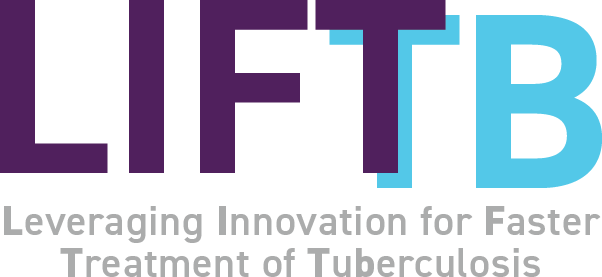Kyrgyzstan, Ukraine, and Uzbekistan Update National Guidelines for Drug-Resistant TB Treatment to Advance National Rollout of Three-Drug, Six-Month Regimen
Interim results of operational research in LIFT-TB countries support decision to roll out improved treatment
PRETORIA (September 18, 2023) — Kyrgyzstan, Ukraine, and Uzbekistan — participants in the LIFT-TB project — have updated their National Tuberculosis (TB) Clinical Guidelines to endorse the all-oral, six-month BPaL/M (bedaquiline + pretomanid + linezolid ± Moxifloxacin) regimen(s) as the national standard for treating most patients with drug-resistant tuberculosis (DR-TB).
The decision for rapid roll-out of the six-month all oral regimens for cases of DR-TB was significantly driven by the BPaL regimen’s performance in operational research conducted in countries participating in the LIFT-TB (Leveraging Innovation for Faster Treatment of Tuberculosis) project, in addition to a December 2022 update of the World Health Organization’s (WHO) guidelines for treating DR-TB that recommended using the BPaL and BPaLM regimens.
Launched in 2020, LIFT-TB is a program intended to broaden adoption and scale-up of innovative TB cures. It operates in Indonesia, Myanmar, the Philippines, Vietnam, Kyrgyzstan, Ukraine, and Uzbekistan. As part of LIFT-TB, Kyrgyzstan, Ukraine and Uzbekistan each completed operational research of the BPaL regimen. Interim results for treatment success rates for DR-TB treated with BPaL in this work ranged from 86% to 97%, in line with success rates observed in clinical trials and other countries in which operational research was conducted.
Further, the National Tuberculosis Program of Ukraine and TB Alliance signed a memorandum of understanding (MOU) that will serve as a framework for collaboration around the implementation of future innovative TB treatments.
“We are extremely excited to see how much of an impact these new, shorter regimens for drug-resistant TB have had in Ukraine,” said Dr. Iana Terleieva, Head of TB Prevention and Control Department of Center of Public Health, Ukraine. “They have proven effective, easier for people to take and for physicians to administer, and we are seeing improved cure rates – even during this time of war in Ukraine. We want to make sure all Ukrainians have access to the shortest and most effective DR-TB cures available, and this MOU will help us do that not only today but with additional new treatments to come.”
“We are pleased to see significant progress toward national adoption in LIFT-TB countries,” said Sandeep Juneja, Senior Vice President of Market Access at TB Alliance. “Advances in TB therapy only realize their benefit when they reach those around the world who need them. At TB Alliance, we are dedicated to ensuring that happens, and LIFT-TB is helping countries with high burden of drug-resistant TB make these new regimens widely available quickly.”
All countries participating in LIFT-TB have completed operational research on BPaL and are making progress toward national implementation. They have also all committed to scaling up use of the treatment for drug-resistant TB.
“We are pleased to be among the leaders in ensuring that new, more patient-friendly treatments for DR-TB reach those who need them. The updating of Kyrgyzstan’s national treatment guidelines to include these new regimens reflects our commitment to move rapidly to make these new therapies widely available throughout the country,” said Professor Kadyrov Abdulat Samatovich, National Tuberculosis Program manager, Kyrgyzstan.
“Our early experience treating DR-TB with the six-month regimens has been highly encouraging. We are eager to make the most safe and effective DR-TB treatments available throughout Uzbekistan, and we are actively working to ensure this scale up happens quickly,” said Nargiza Parpieva, PhD, professor, Director of Republican specialized scientific practical medical center of phthisiology and pulmonology, Head of National Tuberculosis Program, Republic of Uzbekistan.
LIFT-TB is supported by TB Alliance and the Republic of Korea, through the Global Disease Eradication Fund (GDEF), which is operated and managed by the Ministry of Foreign Affairs of South Korea and operated by Korea International Cooperation Agency (KOICA). Additional partners include the International Tuberculosis Research Center (ITRC), located in Korea, and KNCV Tuberculosis Foundation.
“It is heartening to see countries participating in LIFT-TB emerge as leaders in scaling up access to new DR-TB treatments. It is critical that the newest and best treatments are available for all those with DR-TB, and the way these countries are progressing toward that goal should serve as an example for others in the region and beyond,” said Seo hee Chang, Director of Global Disease Eradication Fund Team, KOICA
